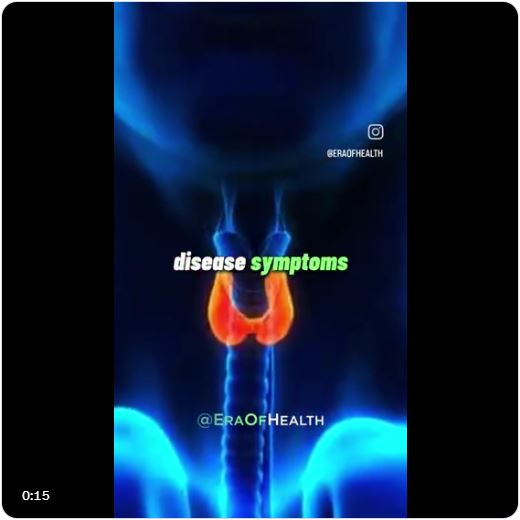
Click to view the video: https://x.com/Rainmaker1973/status/1928112644982010319

Tom's Blog on Life and Livingness

Click to view the video: https://x.com/Rainmaker1973/status/1928112644982010319


Informed consent is the term given in law and commerce to describe the condition of a person having all relevant information known to them prior to making a decision.
There are various statutes that proscribe how this is to be applied – insurance terms and conditions, investment prospectus, health regulations, even nutrition information panels on food products.
This is to ensure that people making decisions are fully appraised of all factors, for and against, and are not blind-sided by factors that would have affected their decision if they had known them prior to making the decision.
These different pieces of legislation came about as a result of various unsavoury activities – from withholding information all the way up the scale of dishonesty to deception, lies, fraud, confidence tricks, covert attempts to harm or kill etc. Any means by which a person could be led to make a decision not in their best interests.
As we have experienced during the Great Covid Con, even governments, their agencies and medical authorities, let alone educational and medical research institutions, big Tech, big Pharma and the media have all been guilty of abusing this principle.
OK, that’s all about ’the other party’. What about you and me, the person making the decision. What’s our responsibility in this?
Well first, we have to be prepared to look at the actual facts of the situation. Not what we’d like to see, not what we hope to see, not what was there before, not what we are told is there, not what is inferred to be there, but what is actually, observably there, here and now in present time.
Only by looking at what is there can we be fully informed for our decision.
“No argument!” you say, “Makes perfect sense.”
Oh yeah, but do you do it? How well do you apply that principle of “Informed Consent” to your decision making?
Do you read the political platform statements of the representatives for whom you vote come election time?
Do you read the nutrition information panels of every food purchase you make?
Do you know the health risks of every food additive, colouring, preservative and flavour enhancer you allow in your diet from ultra-processed foods?
Do you know the 20 different names by which aspartame is called on food labels?
I don’t pose these questions to make you wrong but rather to illustrate the point that we can all do better in applying this principle in our lives. And be better off for doing so.
Now I know what most will think when reading this, that it’s all too hard. There is so much to know and I am busy enough already.
But as I have in my personal email footer:
Our most formidable enemies are:
Personal and collective ignorance,
personal and organisational out-ethics,
lack of personal integrity and
lack of self-discipline.
What we don’t know and what we know we should do but do not discipline
ourselves to do are two things that will kill us. Gradually or suddenly.
Self-discipline is a skill and just like any skill, it improves with practice.
On what are you going to practice yours today?
To your being better off!

During the production of “Murder, She Wrote” (1984-1996), Angela Lansbury’s generosity changed the course of a struggling actor’s career. The young performer faced severe stage fright, leading to multiple retakes that frustrated the crew and raised concerns among producers. His role was at risk, but Lansbury personally intervened, inviting him to rehearse privately. She helped him refine his lines and manage his anxiety, ensuring he delivered a steady performance. Her guidance not only salvaged the scene but also reinforced his confidence. Years later, the actor credited her support as a pivotal moment that saved his career.
Lansbury’s dedication to nurturing talent was deeply ingrained in her approach to acting. She understood the pressure of the industry, having started her own career at a young age. Her breakthrough role in “Gaslight” (1944) earned her an Academy Award nomination at just 19. Throughout the years, she worked with numerous struggling actors, often mentoring them on and off set. Her belief in fostering new talent was evident in “Murder, She Wrote,” where she advocated for casting lesser-known actors, giving many their first major television roles.
Her kindness extended beyond individual mentorship. She often took the time to acknowledge the efforts of crew members, ensuring a supportive working environment. Many co-stars recalled instances where she stepped in to mediate conflicts or spoke up for underappreciated colleagues. Her commitment to fairness even led her to negotiate with network executives to secure better pay for cast members and crew. Unlike many leading actors who focused solely on their performances, Lansbury viewed television production as a collaborative effort.
She once recalled how early in her career, she had witnessed seasoned actors dismiss or belittle younger performers.
Determined not to repeat such behavior, she made a conscious effort to be approachable. On “Murder, She Wrote,” she would often spend time between takes chatting with guest actors, ensuring they felt comfortable. For those struggling with dialogue, she would rehearse lines with them rather than leave them to figure it out alone. These efforts created an atmosphere where actors, regardless of their experience, felt valued and capable of delivering their best work.
Her generosity also extended to financial assistance. She discreetly helped actors and crew members facing personal hardships. In one instance, she learned that a longtime crew member was dealing with medical expenses beyond his means.
Without seeking recognition, she covered the costs, allowing him to continue working without financial distress. Such acts of kindness remained largely private, revealed only years later by those who had benefitted from her support.
Even seasoned actors acknowledged her influence. Co-stars like Len Cariou and Jerry Orbach praised her ability to balance authority and warmth, describing her as a leader who ensured professionalism without creating an intimidating atmosphere. Some actors who had struggled in other productions found working with Lansbury to be a transformative experience, as she provided not only acting guidance but also emotional support during difficult moments.
Beyond “Murder, She Wrote,” Lansbury continued offering guidance to younger actors in her later projects. Whether on stage in productions like “Blithe Spirit” (2009) or in voice roles such as “Beauty and the Beast” (1991), she remained committed to supporting her colleagues. Her kindness was not a calculated effort to enhance her reputation but an instinctive part of who she was.
Angela Lansbury passed away on October 11, 2022, at the age of 96. She died peacefully in her sleep at her Los Angeles home, just five days before her 97th birthday. In her final years, she remained in close contact with many of the actors and crew members she had mentored, offering advice and encouragement long after their professional collaborations had ended.
Those who knew her best remembered her not only as an accomplished actress but also as a person who profoundly influenced the lives of those around her. Her generosity, both on and off set, left a lasting impression on Hollywood, ensuring that her legacy was defined not only by her performances but also by the countless people she uplifted along the way.

Dr Jenn Simmons, MD
Fluoride Displaces Iodine, Shutting Down Thyroid Function & Calcifying The Pineal Gland.
Fluoride Is The Biggest Health Scam Of The Century.
Fluoride Toothpaste & Fluoridated Water Had Nothing To Do With Health, But It Had Everything To Do With Profit.
Fluoride is a waste byproduct of the aluminum manufacturing industry. Sigmund Freud’s nephew, Edward Bernays, was hired to produce an advertising campaign to convince the public that Fluoridated toothpaste & water was healthy.
Paid off Doctors & faulty studies accomplished this lie & the public was duped to believe that it is acceptable to consume toxic waste grade fluoride which contains billions of atoms of lead, arsenic, mercury, cadmium & thallium.
Fluoride is more toxic & lethal than Lead. Fluoride was a common household rodent & pest killer in the early 20th century. Fluoride shuts down our Pineal & Thyroid Gland, causing us to be submissive & bland.
Conditions Caused By Fluoridated Toothpaste & Fluoridated Water:
Bone Fractures & Osteoporosis
Alzheimer’s & Parkinson’s Disease
Autism & ADHD
Lowered IQ
Epilepsy & Huntington’s Disease
Depression & Mood Disorders
Degenerative Eye Disease
Hypothyroidism & Pineal Gland Calcification
Displaces Iodine, Causing Deficiency
Asthma/COPD Airway Hyperreactivity/Panic Attacks
Metabolic Syndrome & Diabetes
Cardiovascular Disease & Hypertension
Autoimmune Diseases & Allergies
Chronic Kidney Disease
Rheumatoid Arthritis
NAFLD & Pancreatitis
PCOS & Infertility
Cancer & Tumors In Every Organ
There are 100s of Non-Fluoride Toothpastes available to purchase in stores & online. It’s also very easy to make your own with only 3 ingredients.
Let me know in the comments if you’d like my toothpaste recipe.
Fluoride infiltrates where Iodine should be & harms thyroid function. Hypothyroid is caused by heavy metals poisoning because Iodine cannot uptake into the cells. Which is why Iodine supplementation & a healing protocol heals Hypothyroid permanently.
Ten Life Transformative Benefits of Iodine Therapy:
1: Detox Mercury, Aluminum, Lead, Fluoride & Bromide
2: Shrinks Cysts, Fibroids & Tumors
3: Prevents Cancer & Parasitic Infections
4: Heals Candida & Fungal Infections
5: Relieves Menopause symptoms, hot flashes & acne
6: Breaks down scar tissue & adhesions
7: Lifts mood & brain fog
8: Heals Hypothyroidism
9: Stimulates hair growth & relieves cold intolerance
10: Heals immune system & reduces inflammation
Sodium Fluoride Is Neurotoxic
https://ehp.niehs.nih.gov/doi/10.1289/ehp.1104912
200+ Studies On Fluoride Harm & Toxicity
https://atsdr.cdc.gov/toxprofiles/tp11-c9.pdf
Public Health Threat From Fluoride
https://mdpi.com/1660-4601/16/8/1427
Click to view the video: https://x.com/ValerieAnne1970/status/1927633544525799631

Fermented jalapeño honey is a perfect way to spice up your life while incorporating the potential benefits of raw honey and jalapeños! Jalapeños and raw honey are a delicious combo, and now is a great time to access them to their fullest in this deliciously spicy natural ferment.
https://www.growforagecookferment.com/fermented-jalapeno-honey/

Garlic is a delicious aromatic that has been long used as a flavor enhancer for many dishes. For thousands of years, it has also been used as a medicine by Chinese, Romans, Greeks, Egyptians, and Babylonians. Eating garlic has been linked to reduce the risk or help prevent the major causes of death worldwide – infections, heart disease, stroke, and cancer.
Garlic is closely related to onions, leeks, and shallots. Each segment of a garlic bulb is called clove.
Found in garlic is a high concentration of sulfur-containing compounds. Its main active components are thiosulfinates, which include allicin. Aside from this, it also has high levels of sulfur, zinc, potassium, phosphorus, and saponins as well as vitamins A and C, calcium, iron, selenium, manganese, magnesium, and B complex.
There are more than 130 studies supporting over 150 beneficial health effects of garlic. Most of these studies were done on raw garlic and a few were made on fermented garlic.
When garlic is consumed raw, it can be a bit spicy for the taste and cause a pungent breath odor. That is where fermented garlic can help you.
Continue: https://drfarrahmd.com/2019/04/fermented-garlic-what-it-does-to-our/

Stunning research confirms Pfizer and Moderna mRNA vaccines integrate into the human genome, permanently altering DNA in just 6 hours!
Studies on human liver cells show reverse transcription, where vaccine mRNA converts to DNA and embeds in your genetic structure.
Swedish researchers verified this process, sparking fears of long-term risks like cancer, autoimmune diseases, and hereditary effects.
“The genetic code in the human body is changed,” warns cardiologist Dr. Peter McCullough, emphasizing potential cellular disruptions.
Another study found vaccine-derived DNA in genomic sequences, hinting at widespread, unpredictable changes.
Lipid nanoparticles in the vaccines may worsen this, spreading mRNA to organs like the liver, ovaries, and spleen.
“We’re staring at a potential health catastrophe,” one scientist stated, calling for urgent investigation.
While authorities dismiss concerns, independent experts demand answers.
Many of us cautioned against the dangers of mRNA integrating into the human genome and urged a ban on mRNA technology, but our warnings were ignored.
I have been working on a solution to this problem: https://www.healthelicious.com.au/NutriBlast_DNA_Heart_Mitochondria.html

Magnesium is a critical mineral involved in over 300 body functions and is essential for overall health. Deficiencies are on the rise due to soil depletion and chronic stress. Low levels are associated with numerous medical conditions. Most adults and some children could benefit from a magnesium supplement. The key is choosing which magnesium type to take for your unique needs.
In the past I have shared a post or two (the above included) on the value of magnesium, highlighting the facts that it is a factor in over 300 functions in the body and that more than half of us are deficient but it does not show up on standard blood tests.
I just saw yet another post on it which varied from those I had seen previously so I combined all three posts and asked Grok to scour the internet for evidence about these claims.
This is the response I received.
TYPES OF MAGNESIUM:
| Magnesium Type | Claimed Benefits | Evidence Summary |
|---|---|---|
| Magnesium Carbonate | Bloated belly | Limited evidence. Magnesium carbonate acts as an antacid, neutralizing stomach acid, which may indirectly reduce bloating from indigestion. Studies focus on its laxative effects for constipation rather than bloating specifically. No trials directly confirm bloating relief as a primary benefit. |
| Magnesium Chloride | Well absorbed by skin/digestive tract; used in lotions/ointments; allergies/detox/histamines/inflammation/MCAS/muscles | Moderate evidence for absorption and muscle benefits. It’s well-absorbed orally, but transdermal absorption (lotions/ointments) is debated—studies show minimal skin uptake compared to oral forms. For allergies/histamines/MCAS, limited trials suggest magnesium stabilizes mast cells, potentially reducing allergic responses or inflammation, but human data is sparse. Muscle relaxation is supported by small studies, particularly for cramps, but detox claims lack evidence and are anecdotal. |
| Magnesium Citrate | Naturally found in citrus fruits; constipation/drooping breasts/oxalate and parasite dumping | Strong evidence for constipation: It’s an osmotic laxative, drawing water into the intestines, with multiple trials confirming efficacy in adults and children. The claim of being “naturally found in citrus fruits” is misleading; citrate is in citrus, but magnesium citrate is a synthesized supplement. No evidence supports “drooping breasts”—this is baseless. Limited data on oxalates suggests it may reduce absorption in deficient states, but “parasite dumping” lacks any scientific backing. |
| Magnesium Glycinate | Naturally occurring in protein-rich foods; mood/pain/PMS/relaxation/sleep | Good evidence for relaxation/sleep/PMS. It enhances GABA activity, with trials showing improved sleep quality and reduced PMS symptoms (e.g., cramps, mood swings). Pain relief is supported for fibromyalgia and migraines, though results vary. The claim of “naturally occurring in protein-rich foods” is imprecise; magnesium is in such foods, but glycinate is a chelated supplement form. Mood benefits are plausible but less studied. |
| Magnesium L-Threonate | Brain/cognition/mood | Promising evidence. Studies show it crosses the blood-brain barrier, improving memory and cognition in animal models and human trials, particularly in older adults with cognitive decline. Mood benefits are supported in preclinical studies, but human data is limited. Often marketed as “Magnesium Threonate” (same compound). |
| Magnesium Lactate | Food preservative/flavoring agent; gentle on digestive tract; anxiety/nervousness/stress | Limited evidence. It’s used in food preservation and is well-tolerated orally, but no specific trials confirm benefits for anxiety, nervousness, or stress. General magnesium studies suggest calming effects via GABA, but lactate-specific data is scarce. Its gentle absorption may benefit those sensitive to other forms, as claimed, but this is not well-studied. |
| Magnesium Malate | Occurs naturally in fruit/wine; well absorbed; fibromyalgia/muscle performance/stiffness/tiredness/pain | Moderate evidence. It’s well-absorbed and may raise magnesium levels effectively. Trials support reduced pain/tenderness in fibromyalgia and improved muscle recovery/fatigue via energy production. The claim of occurring in fruit/wine is partially true; malic acid is natural, but magnesium malate is synthesized. Muscle stiffness and pain relief are plausible based on small studies. |
| Magnesium Orotate | Helps keep DNA healthy; heart health/vaginal odour | Some evidence for heart health. Animal and early human studies suggest it supports cardiac energy metabolism and may reduce heart failure risk, but large trials are lacking. The “DNA health” claim likely refers to its role in nucleotide synthesis, but evidence is speculative. No data supports vaginal odor claims—likely pseudoscientific. |
| Magnesium Oxide | Heartburn/indigestion/constipation | Strong evidence. It’s a proven antacid for heartburn/indigestion and an osmotic laxative for constipation, backed by multiple trials. However, it’s poorly absorbed for systemic magnesium supplementation, limiting other uses. |
| Magnesium Sulfate | Epsom salts; not best oral form; used in baths for sore muscles/relieve stress/detox/drainage/recovery/relaxation/pain/inflammation | Good evidence for pain/relaxation. Epsom salt baths reduce muscle pain and inflammation via some skin absorption, supported by studies. IV magnesium sulfate treats acute pain/stress in clinical settings. Oral absorption is poor, as noted. Detox and “drainage” claims are anecdotal, with no robust evidence. |
| Magnesium Taurate | Blood pressure/blood sugar/cardiovascular vessels/heart/muscle cramps | Promising evidence. Studies show it lowers blood pressure, regulates blood sugar, and supports cardiovascular health in animal and small human trials. Muscle cramp relief is plausible via muscle relaxation, but human data is limited. |
| Magnesium Threonate | Easily absorbed; increases brain cell magnesium; mood/age-related memory loss/anxiety/focus/stress | Promising evidence (same as L-Threonate). Its high bioavailability and ability to cross the blood-brain barrier are supported by studies showing improved memory/cognition in older adults and mood in preclinical models. Anxiety/stress benefits are plausible but lack large human trials. Age-related memory loss is a key research focus with positive results. |